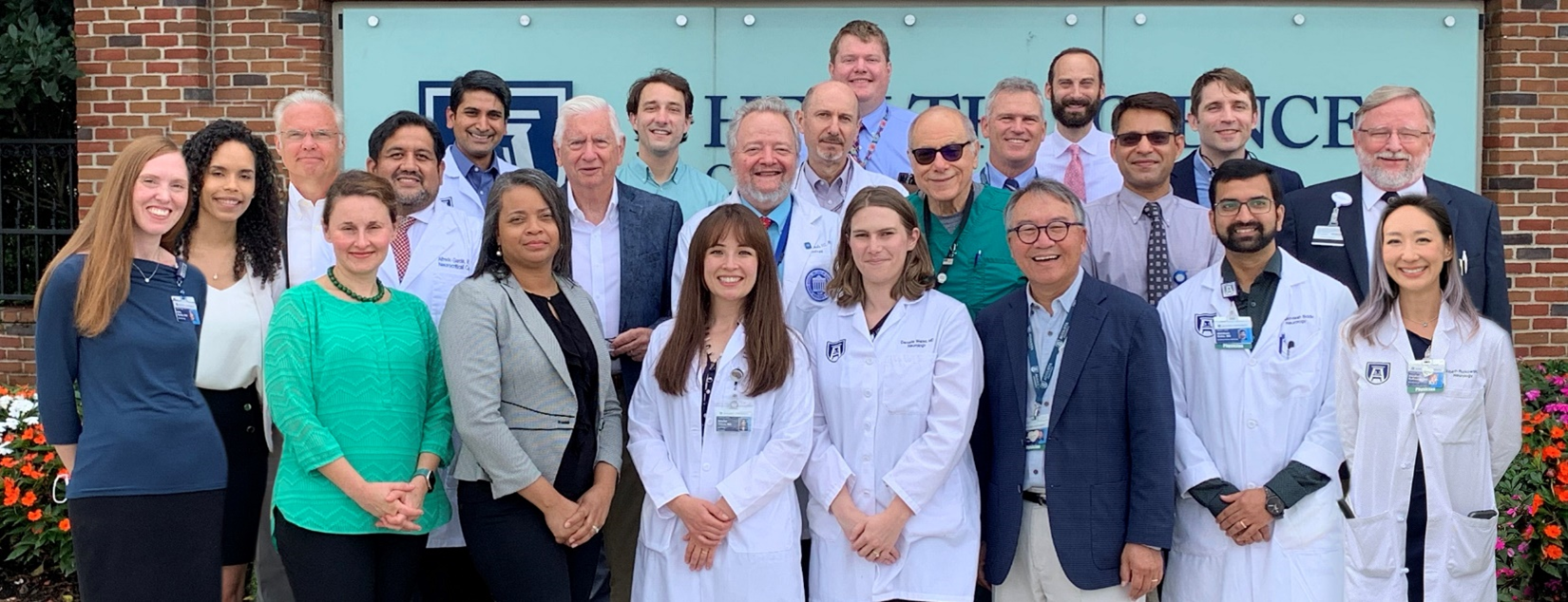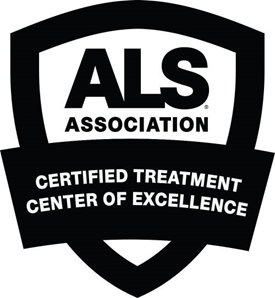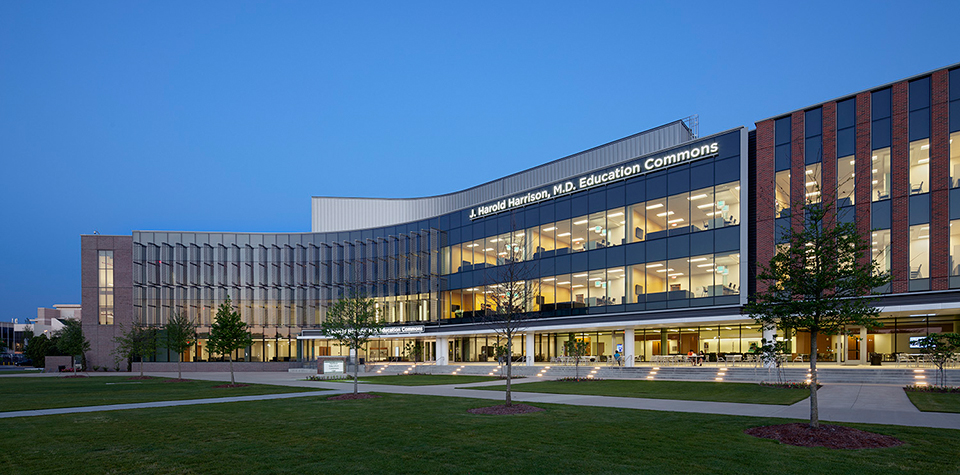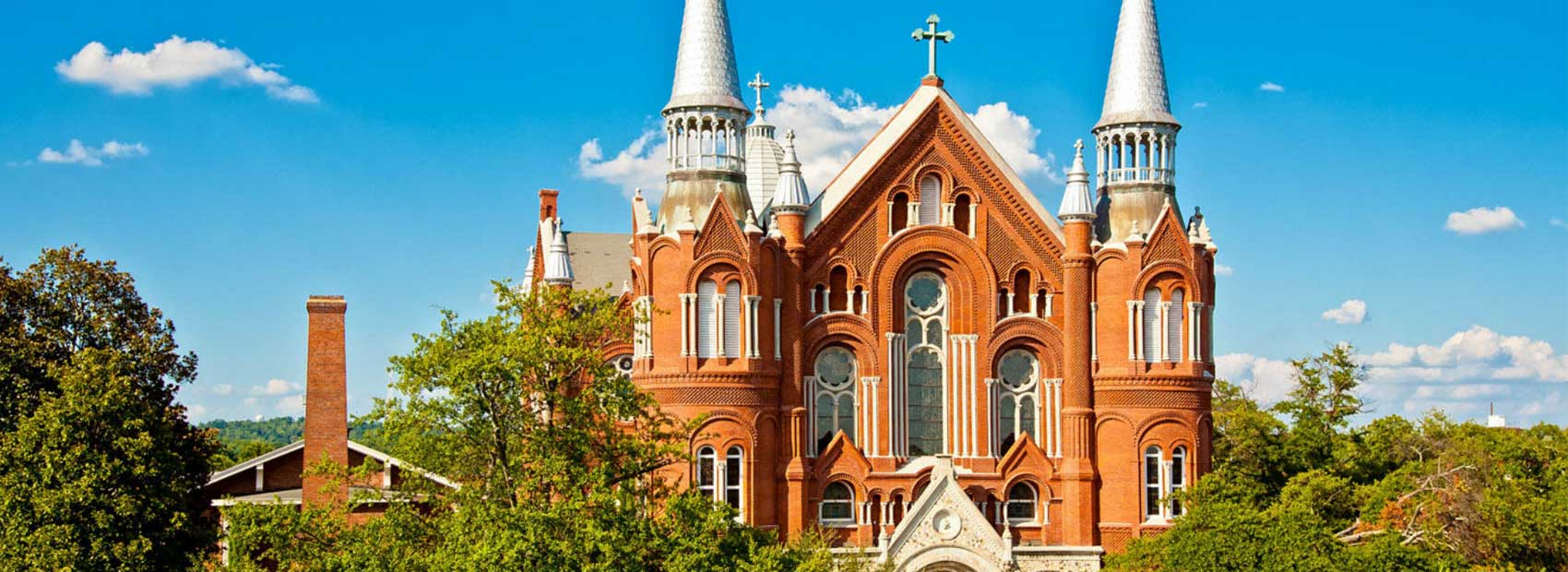Open Rank Neuromuscular Faculty, Medical College of Georgia, Augusta University
- Position:
- Open Rank Neuromuscular Faculty, Medical College of Georgia, Augusta University
- Specialty:
- Neurology – ALS, Neurology – Movement Disorders, Neurology – Muscle Disease, Neurology – Neuromuscular Medicine
- Location:
- Augusta, GA

Augusta University is launching a nationwide search for a Neurologist with subspecialty training or qualifications in neuromuscular disorders to join the Medical College of Georgia (MCG) Department of Neurology faculty at the rank of Assistant/Associate/Professor.
Required Qualifications
- MD or DO
- Board Certified/Eligible in Neurology
- Fellowship trained or duly qualified in neuromuscular disorders
- Eligible for Medical Licensure in the state of Georgia
Position Specifics
Department of Neurology
The Department of Neurology at the Medical College of Georgia at Augusta University aims for the highest quality of clinical care, the best training experience for our medical students, residents, and fellows, and the performance of cutting-edge research.

Our teaching mission includes medical students, residents, and fellows undergoing advanced training. Research activities in the department include both basic science and clinical and translational investigations. Additionally, our multidisciplinary Neuroscience Center of Excellence facilitates active collaborations with subspecialists from other departments including general neurosurgery, neuroradiology, neuro-otology, neuro-ophthalmology, functional neurosurgery (deep brain stimulation and epilepsy surgery), neuro-gastroenterology and basic science. Our facility houses a wide variety of other specialties including a level I trauma center, and seven ICUs (neurology, shock trauma, surgery, pediatric, neonatal, cardiology, and medical).
Division of Neuromuscular Disorders
The Neuromuscular Disorder section of Neurology at MCG – Augusta University specializes in diseases affecting muscles and nerves including:
- ALS (Amyotrophic lateral sclerosis) – Lou Gehrig’s Disease
- Myasthenia gravis
- Chronic inflammatory demyelinating polyradiculoneuropathy
- Muscular dystrophies
- Neuropathies
- Other muscle diseases such as polymyositis
- Nerve conduction studies
- Electromyography
- Nerve and muscle ultrasound
- Skin biopsies
ALS Clinic and Research
The Augusta University ALS Clinic was started in 2004 as a half day clinic each month. It has now grown to a bimonthly full day clinic. Our clinic is ALSA certified clinic which means that we underwent a rigorous certification process. The clinic is a multidisciplinary clinic so that our ALS patient can receive all needed services at a single visit. It is staffed by 2 dedicated ALS specialists, physical therapist, occupational therapist, speech and language pathologists, respiratory therapist, a dietician and representatives from the ALS Association. In addition, we have equipment vendors in the clinic so tht patients can get needed equipment during the clinic.
Patients suspected of ALS are seen in our neuromuscular clinic by one of our ALS specialists. During the visit, we can do a diagnostic EMG so the diagnosis can be made at the time of the visit. We guarantee that we see all patients suspected of ALS within 1 month.

We have an active clinical research program with 2 full time research associates. Over the years we have participated in numerous ALS Clinical research studies. Currently we are engaged in 3 clinical research studies.
- Anelixis Study—monoclonal antibody to CD40LG
- COMBAT-ALS—neuroprotective agent (ibudilast)
- Apellis Study—C3 inhibitor
We have participated in several Basic research projects looking at the etiology of ALS. In the past we looked at the association of LRP4/Agrin antibodies in ALS and SGPG antibodies in ALS. We have just recruited a Basic Researcher, Dr Eric Vitriol who start work in February. He will be looking at the Actin cytoskeleton in ALS. We hope that projects such as this will lead to understanding the cause of ALS which hopefully lead to better treatment for our patients.
Our multi-disciplinary clinic is designed to help our ALS patients throughout all stages of their disease from the initial diagnosis to Hospice care. Our patients have access of all the most recent treatments which have been shown to improve outcome. Our patients have access to clinical trials and basic research projects which hopefully, will one day, lead to a cure.
Myasthenia Gravis Program and Research
AU has an active program in Myasthenia Gravis. We can fully evaluate patients seen in our clinic for neuromuscular transmission disorders including Myasthenia Gravis and Myasthenic Syndrome. We can do repetitive nerve stimulation and single fiber EMG studies.
We offer all modalities of therapy including, plasma exchange, IVIG, eculizumab as well as standard immunosuppressant therapy. We offer antibody testing and have recently discovered LRP4 and Agrin antibodies which are linked to myasthenia gravis in patients that are negative to standard testing for ACHR and MuSK antibodies.
We are actively engaged in clinical research in Myasthenia Gravis. Currently we have 4 clinical studies in Myasthenia Gravis.
- Raise Study—This is a monoclonal antibody against C5
- MG0003—This is a monoclonal antibody against the FCRN receptor
- Takeda Study—This is a monoclonal antibody against CD38
- Alexion Registry Study—This is an observational study for patients getting eculizumab
We have recently completed a NIH Study designed to study the clinical characteristics of patient with LRP4 and Agrin antibodies in patients with Double negative MG.
Botulinum Toxin Program
We specialize in difficult to treat movement disorders requiring botulinum toxin therapy. Our physicians have over 30 years of clinical experience in this area. We have been involved in clinical research studies involving botulinum toxin including the PREMPT that led to the approval of Botox for migraine headaches.
About the Medical College of Georgia at Augusta University
The Medical College of Georgia (MCG) is the flagship medical school of the University System of Georgia, the state’s only public medical school, and one of the top 5 largest medical schools in the United States. Founded nearly 200 years ago in 1828 as the nation’s fifth public medical school, the third medical school in the Southeast and the thirteenth in the nation, MCG has risen to its current role optimizing health care in Georgia and beyond through education, discovery, and service. The Medical College of Georgia educational experience is anchored by the main campus in Augusta, as well as three regional clinical campuses for third-and fourth-year students and a second four-year campus in Athens, Georgia in partnership with the University of Georgia. The state’s medical school also offers clinical training in more than 200 sites across the state providing students experience in the full spectrum of medicine, from tertiary/quaternary care hospitals to small-town solo practices. MCG and its teaching hospitals provide postgraduate education to nearly 500 residents in 44 different programs. More than 51 percent of MCG graduates remain in Georgia to practice, well above the average retention rate of 39 percent. In 2016 MCG graduated more than twice the number of physicians going into primary care and core specialties – like family medicine, internal medicine, pediatrics, obstetrics and gynecology, emergency medicine, and general surgery – than any other medical school in the state of Georgia.

Our researchers and clinicians focus on illnesses that affect most of Georgia and America’s children and adults, including cardiovascular biology and disease, cancer, neurosciences and behavioral sciences, public and preventive health, regenerative and reparative medicine, personalized medicine, and genomics. They also share their expertise with physicians and patients at about 80 clinics and hospitals statewide.
Augusta University Health System

Augusta University Health is a world-class health care network, offering the most comprehensive primary, specialty and subspecialty care in the region. Augusta University Health provides skilled, compassionate care to its patients, conducts leading-edge clinical research and fosters the medical education and training of tomorrow’s health care practitioners. Augusta University Health is a not-for-profit corporation that manages the clinical operations associated with Augusta University.
The health system in numbers:
• 478-bed Augusta University Medical Center at Augusta University
• 154-bed Children’s Hospital of Georgia including the region’s only Level IV NICU
• More than 80 outpatient practice sites in one convenient setting (Medical Office Building)
• Critical Care Center, housing a 13-county regional Level I trauma center
In addition to providing care in the Augusta area, Augusta University Health physicians travel to satellite practice sites throughout Georgia illustrating our commitment to care for people across the state and region. Augusta University Health is a thriving academic health center that also is affiliated with the following entities:
Augusta University’s Health Sciences Campus is composed of the:
• Colleges of Allied Health
• College of Dental Medicine
• Graduate Studies
• Nursing
• Medical College of Georgia
Faculty group practice plans, including the:
• AU Medical Associates
• AU Dental Associates
• Allied Health Practice Group
• School of Nursing Faculty Practice Group
Location – Augusta, GA

Georgia’s second oldest and second-largest city, Augusta, is situated on the southern banks of the storied Savannah River. Serving as a halfway point between the Appalachian Mountains to the north and the Atlantic Ocean to the south, Augusta is a thriving community built on a solid foundation of local pride and artistic eccentricity.

A timeless locale, a visit to Augusta is a life-altering lesson in Southern hospitality. While other places have undergone cultural revolutions, Augusta underwent a cultural evolution instead, trading big city lights and loud, busy streets for cold sweet tea and a shore-side view of the Savannah River. Downtown, locally owned shops and restaurants mingle in the shade of memorable hangouts, and state-of-the-art galleries beckon artists, lovers, thinkers, and dreamers alike to the South’s “Garden City.”

Augusta is so much more than just a cozy place to live. Spearheaded by the next generation of musicians, foodies, artists and go-getters, the old city comes to life at night, offering live music, theater shows, and a wealth of hole-in-the-wall eateries built to please. In addition to serving as a haven of technology and the arts, Augusta is also home to some of the nation’s most beautiful lakes and trails, offering year-round outdoor adventures.

Sporting life is synonymous with the Augusta name, and the city proper is home to a number of professional baseball, roller derby and rugby teams. Several annual sporting events take place in and around Augusta, including the Ironman 70.3 Augusta triathlon, the Augusta Futurity, and the always exciting Augusta Southern Nationals, dubbed by those in the know as the “World’s Richest Drag Boat Race.”

On top of world-class entertainment and outdoor sporting, Augusta is also world-renowned as the home of The Masters—an annual golf tournament sometimes dubbed the “Super Bowl” of golf. Every year during the first full week in April, Augusta becomes the golf capitol of the world, welcoming local legends, and long-time favorites back to the prettiest course on Earth.




